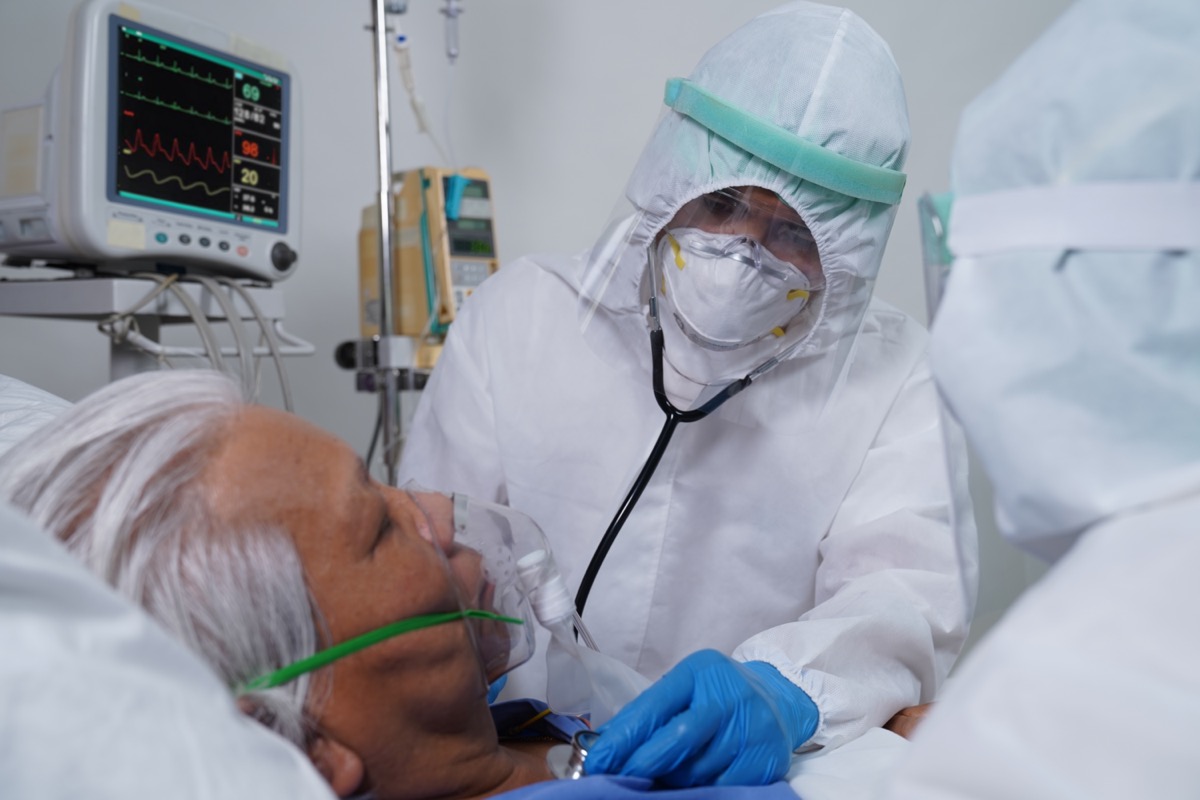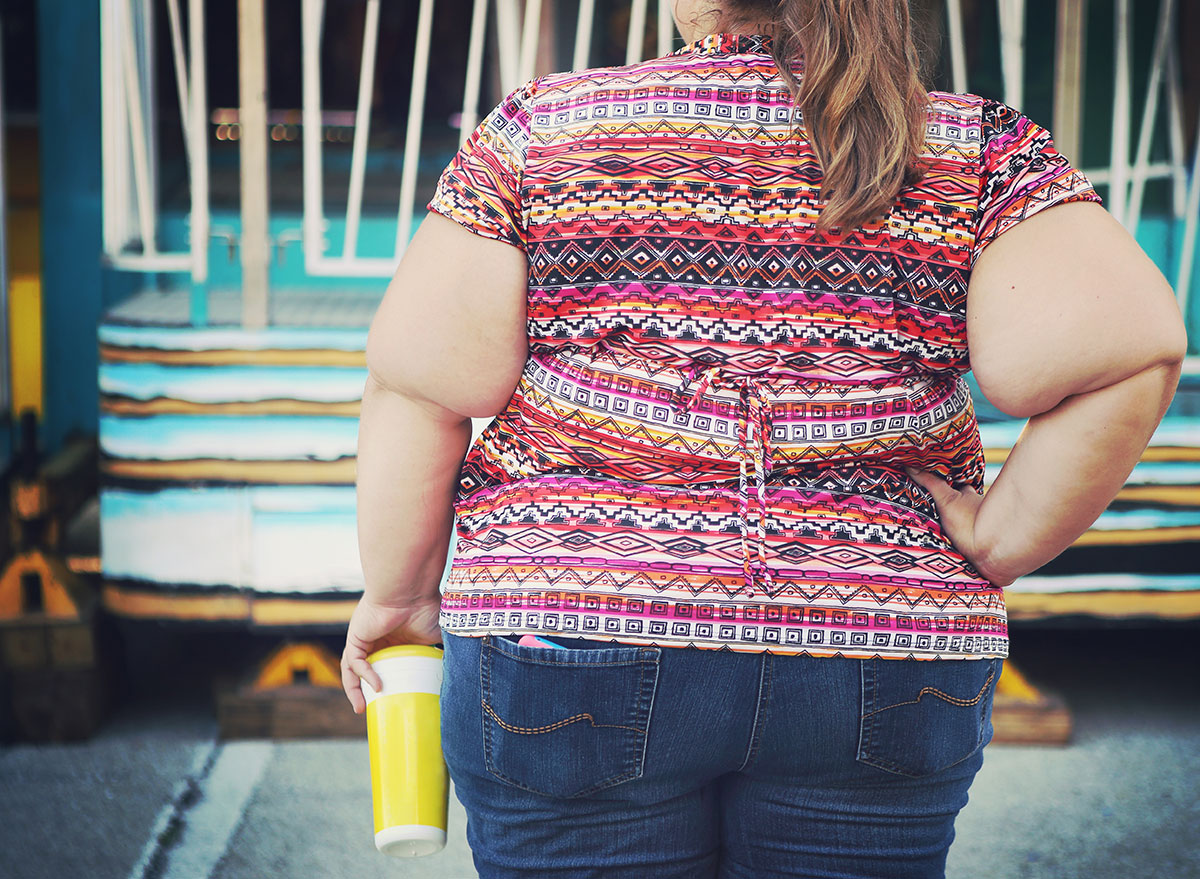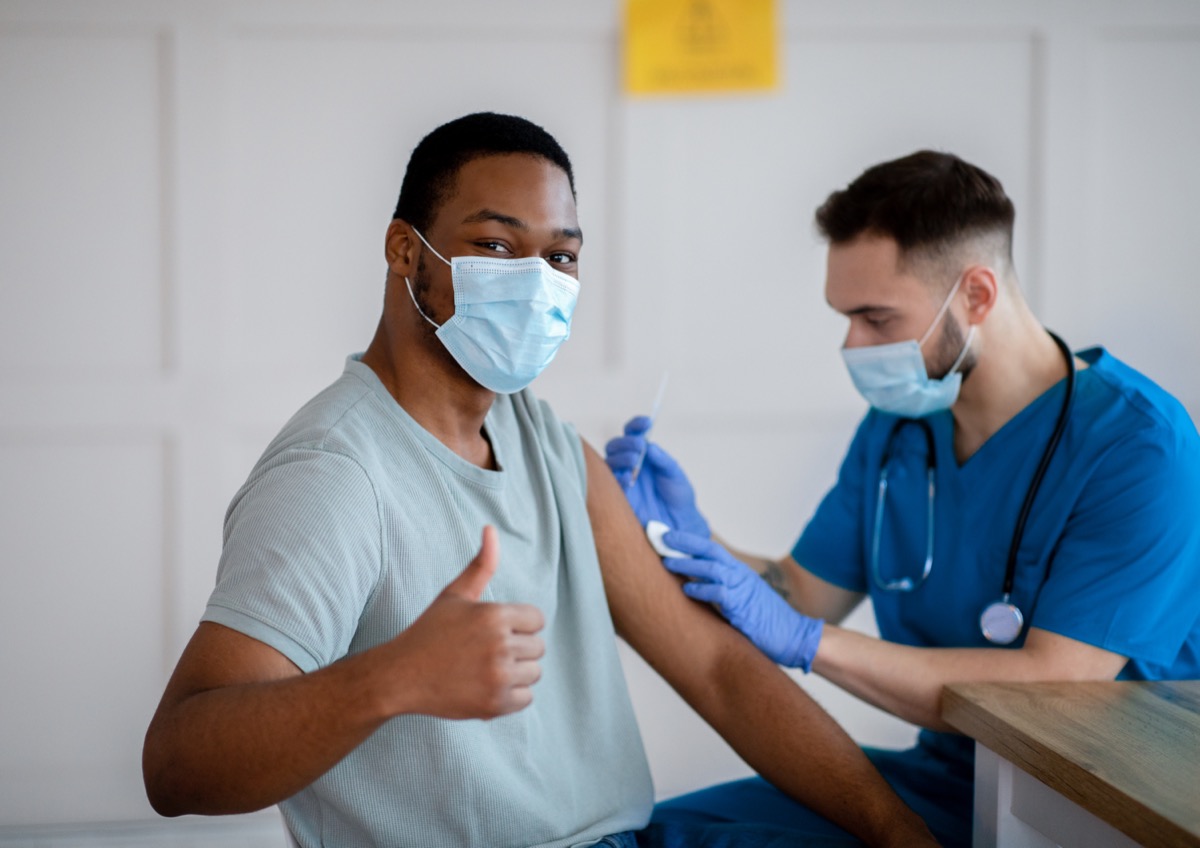
With 100,000 COVID cases per day in America, the coronavirus pandemic isn't ending, even though cases may be ebbing. With more than half the country still unvaccinated, there is no end in sight. With this in mind, infectious disease expert Dr. Jeannie Marrazzo, director of the Division of Infectious Diseases at UAB Medicine, appeared on Grey TV's Full Court Press with Greta Van Sustern to issue a warning. Read on for five essential slides—and to ensure your health and the health of others, don't miss these Sure Signs You've Already Had COVID.

"We're seeing the people who are hospitalized in the intensive care units with COVID are really sick," said Dr. Marrazzo. "They tend to stay there a long time, whether they die or not—stays in the ICU are really prolonged. Part of it is because a lot of them are younger because younger people are unvaccinated. So it takes them longer to go really bad if they're not going to make it, or if they're going to make it, it just takes a long time to get over a severe COVID. So I would say we are at a tenuous steady state. Now some places in the U.S. are nowhere near, as healthy as that, right. You're hearing about some very acute situations in Idaho and Alaska. So I don't think we're out of the woods yet unfortunately."

In Alaska, to name just one state, doctors are having to decide who to care for. "I don't think we've ever been faced with rationing care in this acute of a situation," she said. "So visibly before the reality is we do ration care. And a great example that I just heard about is that I believe it's the University of Colorado health care systems is now denying consideration of transplants to people who refuse COVID vaccination. And what people often don't realize is that for interventions like transplants, organ transplants, we tend to choose patients who are optimized to the best outcomes, right? We will not transplant patients for a liver. Say, if they're continuing to drink, we will not transplant patients for lungs. For example, if they're continuing to smoke. So this is another example of trying to decide who's going to be best served by getting the care they really need. The situation in Alaska is really tragic. And it's been played out across the world with COVID. You're seeing these very, very dramatic incidents or examples of what we have to decide when we're deciding who gets care."
RELATED: Dr. Fauci Just Predicted What Will Happen Next

"Comorbidities are higher in those areas because people don't often have access to the fantastic kinds of preventive care that you and I have, whether it's blood pressure maintenance, whether it's care of their asthma, whether it's preventive care of cardiac disease, or even renal disease and diabetes, gigantic one, right?" said the expert to Van Sustern. "Not to mention obesity. So you have a population in rural areas who generally is going to be set up for more adverse consequences of COVID in the first place. The second thing is that there are access issues to getting vaccines. It's a very, very challenging situation."
RELATED: If You Got Pfizer, Here's Your Booster Info

"Pediatric cases in August hit an all time high for the entire pandemic," said the virus expert. "I think there are a couple of reasons for this. One is of course we're behind on vaccinating kids. The second thing is the Delta variant. Two characteristics of the Delta variant, I think have set us up to have this adverse pediatric situation. One is the infectiousness. It's a hundred times more infectious. So if you're going to get exposed to it, you're probably going to get it. If you're an unvaccinated little kid and you were going back to schools, starting to be with people in late August, et cetera, you probably were going to get infected. The second thing is that Delta causes more severe disease. I don't think we were quite so sure about that a few months ago, but I think there is now no question that the incidents of severe disease in kids requiring ICU care requiring intubation is higher with Delta, for reasons we don't yet really understand. So I think that's what's going on with kids and hopefully we can reverse the trend because I'm very worried, um, of obviously as the weather gets colder and people start going back into schools and indoor situations with the holidays coming up."
RELATED: These 8 States are Next COVID "Hotspots," Says Virus Expert

Follow the public health fundamentals and help end this pandemic, no matter where you live—get vaccinated ASAP; if you live in an area with low vaccination rates, wear an N95 face mask, don't travel, social distance, avoid large crowds, don't go indoors with people you're not sheltering with (especially in bars), practice good hand hygiene, and to protect your life and the lives of others, don't visit any of these 35 Places You're Most Likely to Catch COVID.
Alek Korab
Alek Korab is a Co-Founder and Managing Editor of the ETNT Health channel on Eat This, Not That! Read more
